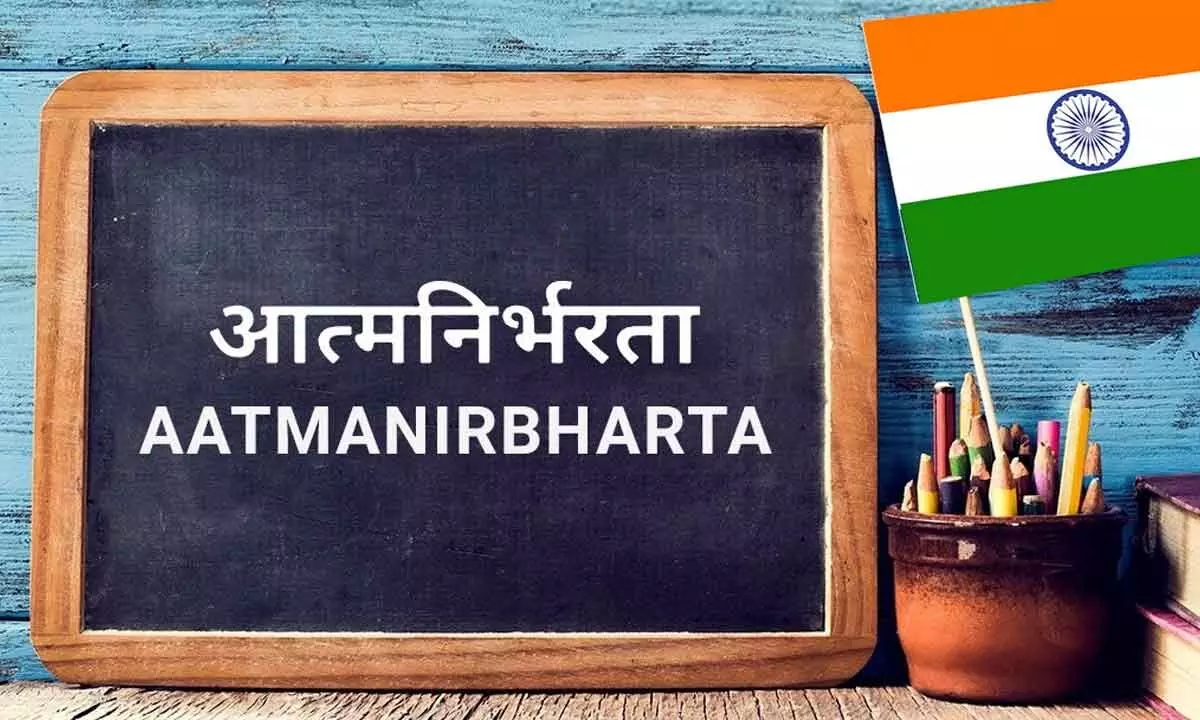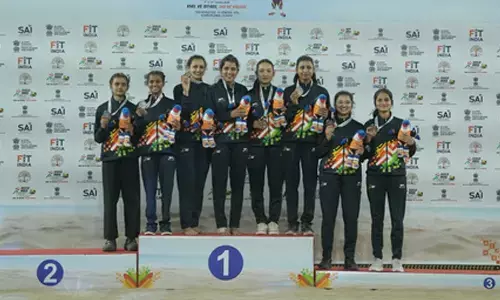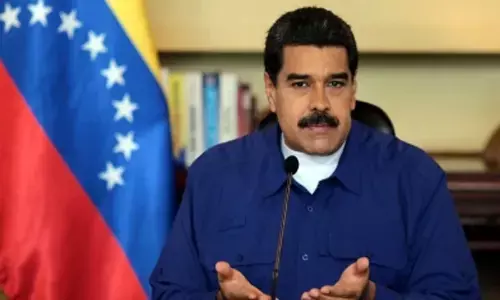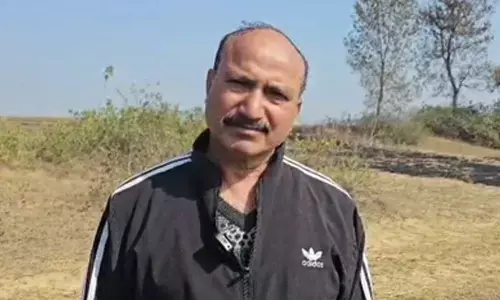Aatmanirbharta: New Lease of life for India

Being chosen as the Oxford Dictionary Hindi Word of the Year 2022, the term 'Aatmanirbharta' was not only one of the most often-quoted words but also a term that united the country in truly dark and gloomy times.
Being chosen as the Oxford Dictionary Hindi Word of the Year 2022, the term 'Aatmanirbharta' was not only one of the most often-quoted words but also a term that united the country in truly dark and gloomy times.
Meaning 'self-reliance' essentially, the idea is a major foundation on which the military, economic and social capabilities of any nation rests. A nation that is dependent on another can never truly be sovereign and independent in its own right.
For decades, India has attempted to build self-reliance in different sectors of its economy but without much structure or success. However, when shaped as a national policy during the pandemic, a new direction was sought to be achieved towards making India truly self-reliant as well as change the perception around foreign and indigenous goods.
As a thought-out plan whose foundations were laid in the aftermath of the global supply chain disruptions during the pandemic, India has been able to progress in a manner that has also taken along the entire global family on its path of progress. This year, India surpassed the UK to become the fifth-largest economy in the world. In terms of UPI transactions, over 40 per cent of the world's transactions happened in India. Similarly, India achieved a record of administering over 200 crore vaccination doses.
Within a short span, India has now successfully built the third-largest startup ecosystem of the world. Therefore, it would be unfair to state that progress has not been made over the last few years. In fact, India has surpassed expectations within the period of the pandemic and the aftermath of it. Even during the pandemic, India emerged as the medical hub of the world, from manufacturing masks and PPE kits to medicines and vaccines, India has been able to write a whole new chapter of Aatmanirbharta in many fields.
One such field, which has seen massive overhaul, is the defence production sector. Focusing on the aspect of locally-produced items, the aim of the campaign was to encourage the indigenous products to be purchased, manufactured and supplied. Developing a new defence ecosystem began in mission mode.
Taking lessons from the hits and misses of the last few decades, the defence research & development was opened up to startups and the private sector. With the reorganisation of public defence companies in specific sectors, renewed attention has been given to connecting academic institutions, defence research and innovation to boost their collective efforts in creating a recharged, efficient and renewed ecosystem. This renewed effort has yielded instant results as India has been able to rank among the top 25 global arms exporters for the first time in the year 2020.
Weapons are being supplied from India's ordnance factories to countries like Brazil, Bangladesh, Bulgaria, Sweden, UAE, Israel, etc. after the ban on exporting weapons was lifted in 2016. In addition, India shall soon sell an anti-ship variant of the BrahMos missile to Indonesia as well. In light of the same, a recent symposium - Swavalamban - was organised by the Naval Innovation and Indigenisation Organisation (NIIO).
In addition, a country that was dependent on the world for fertilizers and shortages thereof has now been able to evolve with the neem-coating of urea and Nano urea in the mix as well. Farmers are no longer suffering and black marketing of urea has been controlled to a huge extent providing huge relief to the agriculture as well as allied sectors. Even the Palm Oil mission, the targets of ethanol blending as well as development of semiconductors are all steps that would not have been undertaken if the Aatmanirbhar idea had not been undertaken with as much gusto as it was.
In addition, making khadi as well as the handicraft industry a strong pillar of self-reliance, India has been able to take these khadi and handloom products to the global market as well.
With the unprecedented curiosity in the world to know and understand India, Indian products and ideas have gained a new currency. All in all, the results of the efforts that were put in are visible for everyone.
In the last five years, self-reliance has become a new identity of strength for India. Speed and scale have evolved as India's aspiration and strength. Imports have reduced while exports are being promoted, with the enthusiasm of foreign investors having captivated successfully as well. India is now well on its way towards becoming a major products' and services' exporter if all goes as per plan.















